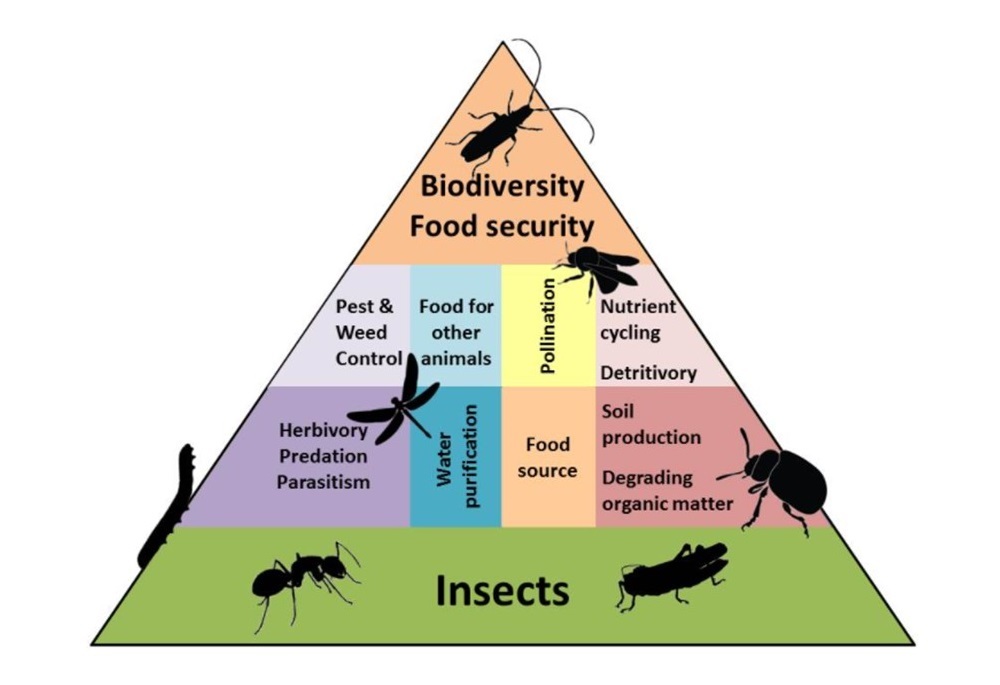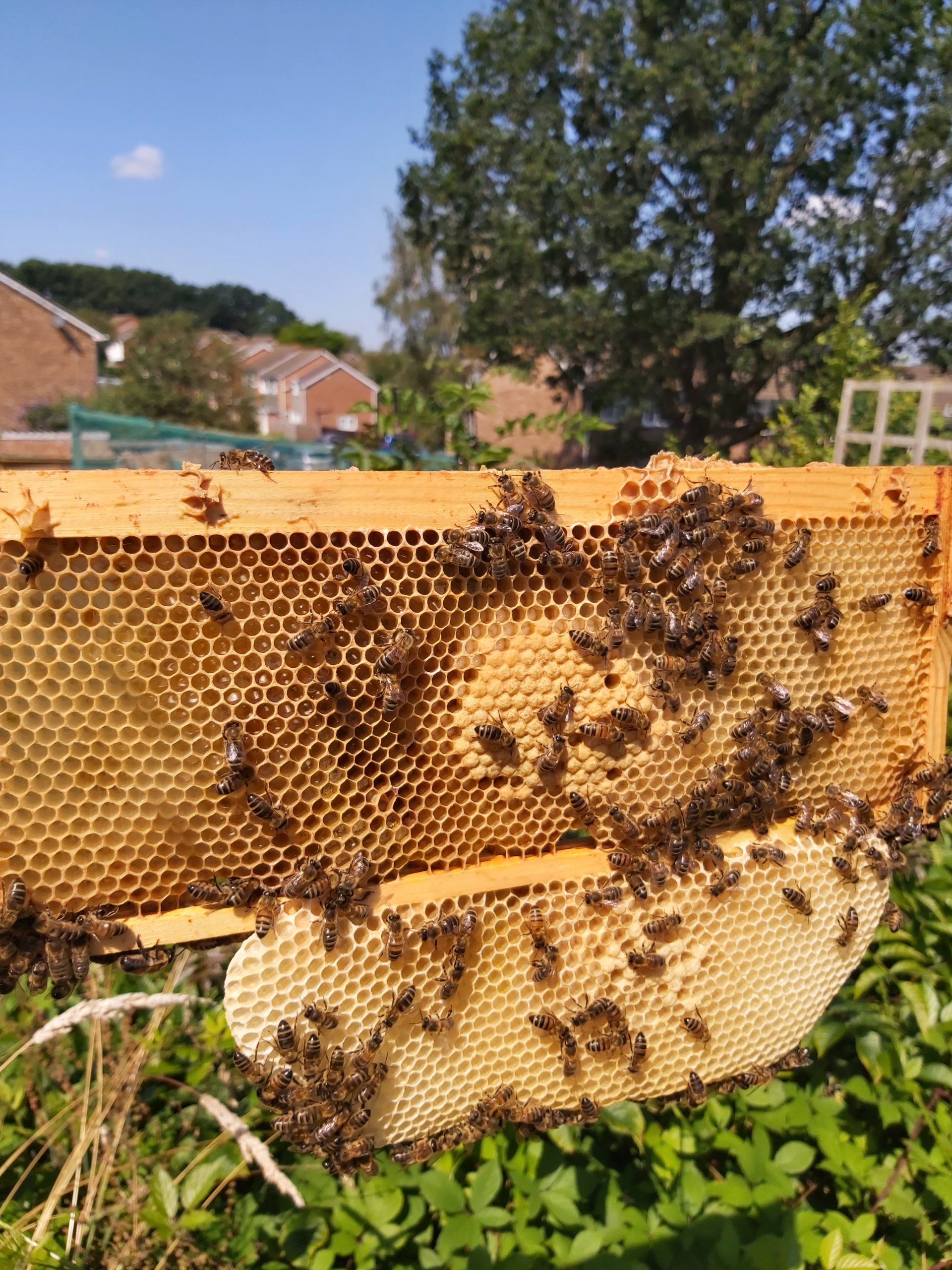 Abraham Lincoln
If given the truth, the people can be depended upon to meet any national crisis...
Abraham Lincoln
If given the truth, the people can be depended upon to meet any national crisis...
 Guildford news...
for Guildford people, brought to you by Guildford reporters - Guildford's own news service
Guildford news...
for Guildford people, brought to you by Guildford reporters - Guildford's own news service
Beekeeper’s Notes: A little Surprise Turns Up On The Allotment
Published on: 1 Aug, 2021
Updated on: 2 Aug, 2021
Hugh Coakley keeps bees in Worplesdon
One of the great pleasures of beekeeping is the unexpected.
A colony you are convinced has no queen suddenly starts to produce brood. A tiny hive goes into overdrive and ends up twice the size you expected.
Or a couple of weeks ago on the allotment, a small swarm arrived and took up residence in a stack of empty hive boxes in my apiary. They look good, the queen is laying well and so thank you nature and the bees for providing such a lovely surprise.
I saw an article recently which shows just how quickly firmly held beliefs can change. A couple of years ago, it was very fashionable to have bees installed on a corporate roof. It sent all the right green signals of sustainability, caring for the environment with honey thrown in as well.
What could possibly go wrong with that!
Now there is a realisation we don’t need more honey bees. Too many hives in one area can overwhelm local species with their sheer numbers and their (and their keepers) voracious appetite.
Rather than more managed bee colonies, we need to turn the tide of declining insect numbers. We have to save and increase natural habitats and encourage our wild insects, said to be eroding at 10% a decade, to thrive again.

Insect pryramid (illustration from Buglife).
The Wildlife Trust says three bumblebee species have become extinct in recent decades and almost one in 10 species of wild bee face extinction.
Insects are too important to our planet and to humans to risk their destruction.
We have to defend every last area of green, every tree and field and bush. It is no longer acceptable to say a development will only have a small adverse impact on the environment. It all adds up and we are all paying for it.
Recent Articles
- Guildford Institute’s Crowdfunding Project for Accessible Toilet in its New Community and Wellbeing Centre
- Letter: Guildford – Another Opportunity Missed?
- Letter: GBC’s Corporate Strategy – Where Is the Ambition?
- My Memories of John Mayall at a Ground-breaking Gig in Guildford Nearly Six Decades Ago
- Westborough HMO Plans ‘Losing the Heart of the Street’ Says Resident
- College Invests to Boost Surrey’s Economy and Close Digital Skills Gap
- Community Lottery Brings Big Wins for Local Charities
- GBC Housing Plan Promises ‘A Vibrant Urban Neighbourhood’ Near Town Centre
- Hospital Pillows ‘Shortage’ at the Royal Surrey
- Updated: Caravans Set Up Camp at Ash Manor School


Search in Site
Media Gallery
Dragon Interview: Local Artist Leaves Her Mark At One of England’s Most Historic Buildings
January 21, 2023 / No Comment / Read MoreDragon Interview: Lib Dem Planning Chair: ‘Current Policy Doesn’t Work for Local People’
January 19, 2023 / No Comment / Read MoreA3 Tunnel in Guildford ‘Necessary’ for New Homes, Says Guildford’s MP
January 10, 2023 / No Comment / Read More‘Madness’ for London Road Scheme to Go Ahead Against ‘Huge Opposition’, Says SCC Leader
January 6, 2023 / No Comment / Read MoreCouncillor’s Son Starts Campaign for More Consultation on North Street Plan
December 30, 2022 / No Comment / Read MoreCounty Council Climbs Down Over London Road Works – Further ‘Engagement’ Period Announced
December 14, 2022 / No Comment / Read MoreDragon Interview: GBC Reaction to the Government’s Expected Decision to Relax Housing Targets
December 7, 2022 / No Comment / Read MoreHow Can Our Town Centre Businesses Recover? Watch the Shop Front Debate
May 18, 2020 / No Comment / Read More










Recent Comments